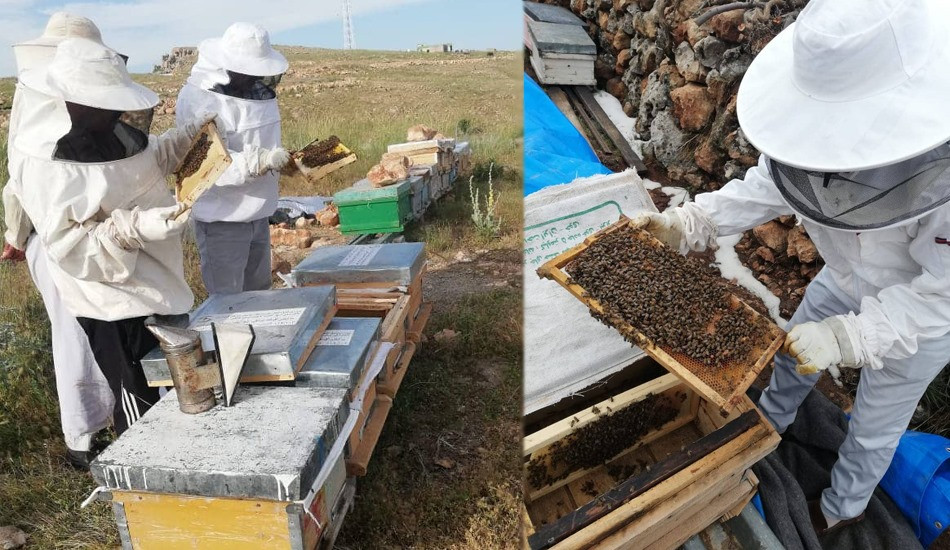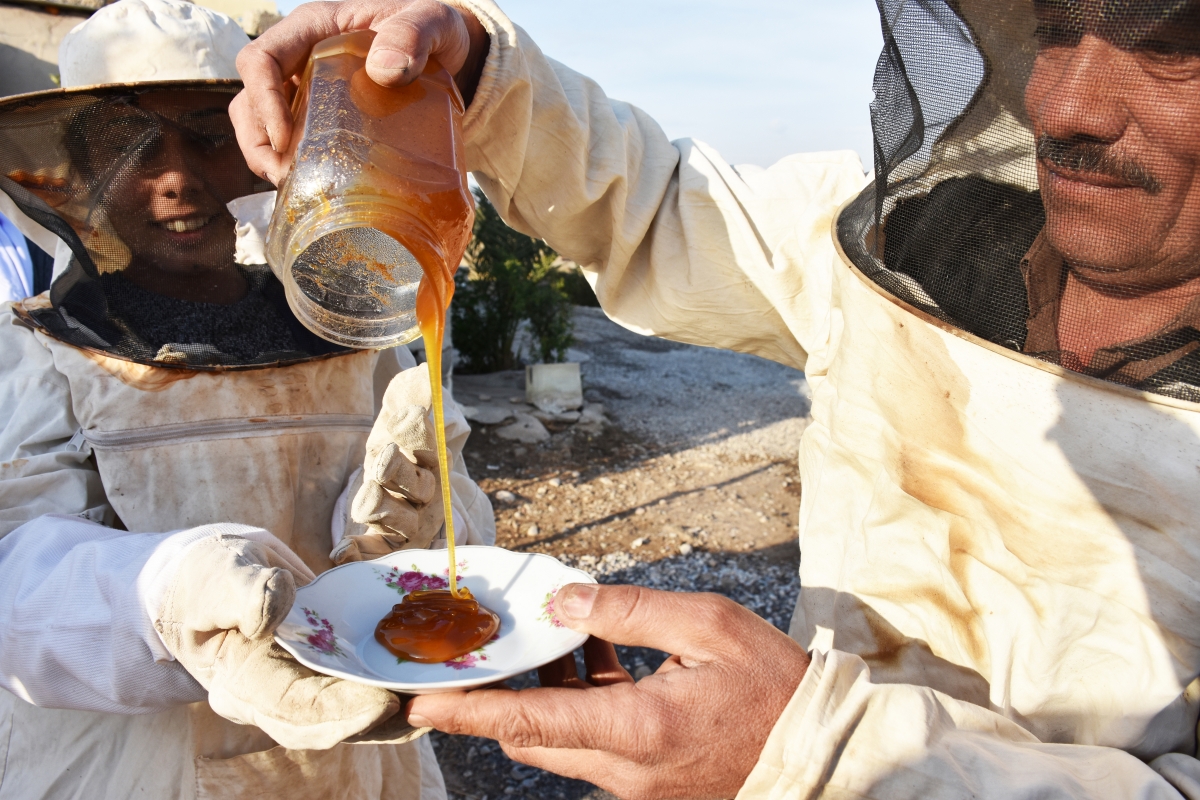About 100 beekeepers in a district of Ninewa province managed to produce 10 tons of honey last year, calling on the government to help them to develop the "sweet" profession and increase honey production.
The request coincides with World Bee Day, which is celebrated by the United Nations on May 20 every year.
Kamil Ali Khidir, beekeeping for 15 years in Sinuny sub-district of Shangal district, bought 100 hives for 10 million Iraqi dinars IQD (USD7,000) this year.
“Many of my bees have died for two years due to lack of rainfall and greenery. I was obliged to buy more hives in order to increase my production,” Khidir said.
“The government should have helped us. I have an official agricultural license as a beekeeper. So far they have given me only two bees,” he added. “We pay for feeding the bees and other supplies all at our own expenses.”
We pay for feeding the bees and other supplies all at our own expenses
During the Islamic State in Iraq and Syria ISIS war in Iraq (2014-2017), the bee farmers suffered the damage of the war and many of their bees were destroyed when they were displaced.
The resumption of beekeeping (apiculture) following the war against ISIS in the region was with the help of several local and foreign organizations, according to Khidir, but the beekeepers are in greater demand for assistance.
In 2017, when the Iraqi government announced the end of IS in Iraq, an NGO (Zakho Small Village Project) with the support of the United Nations Development Program in Iraq (UNDP) and the German government distributed bees to 200 households in the Nineveh Plain and Duhok province, following intensive training on how to raise them.
The existence of wildflowers and different herbs such as Ghazal and Zakhtar in addition to the perfect climate conditions has turned Shingal into a heaven for bees. Shingal’s honey which has three types: red, black and yellow, is most favorable in Iraqi markets.

There are 80 beekeepers in the Sinuny, according to the statistics of the district's agriculture department, but only six beekeepers are registered in the department.
"The 80 beekeepers have about 1,800 bees. Last year their production was 10 tons," Hadi Kati, head of product protection at agricultural department of Sinuny, told KirkukNow.
"Until two months ago, we expected more production this year, but the recent dust has had a very bad impact on bees and it seems that there will be no increase this year," he said.
Until two months ago, we expected higher outcome this year, but the recent dust has had a very bad impact
Beekeeping has existed in Iraq in one form or another for an estimated 8,000 years, with ancient Sumerian tablets carrying recipes that use honey for medicinal purposes – treating skin infections, ulcers and disease, the UNDP Iraq says.
“Today, beekeeping is resurging following a stark decline throughout the 19th and 20th centuries, primarily due to recurring conflict, disease, displacement, and the increase in chemicals used for agriculture,” a story by UNDP about beekeeping in Iraq says.
“Whilst the practice has come a long way, shifting from the use of mud and straw hives to the modern style racks of wood and plastic, the number of local beekeepers selling commercially in Iraq, remains low.”
Shingal, located 120 km west of Mosul, center of Nineveh province, used to be home to over 100,000 adherents Ezidi ethno-religious minority and one of the disputed territories between Baghdad and Erbil. Ezidis also live in Shekhan, Bashiqa and other areas of Duhok Northern Province.
"The main problem of the beekeepers in Sinjar is the lack of assistance from the government. Last year, the (non-governmental) organizations provided various assistance such as distribution of bees and breeding supplies, but this year there was no assistance," said Barakat Isa, a manager of Sinuny agriculture.
The neglect of the beekeepers of Sinjar comes at a time when the honey of the region is considered to be one of the best honey in Iraq.
“This year the amount of rainfall was better, which is for the benefit of the bees,” Isa added.
There are 20 beekeepers in Sinjar, 12 of whom are officially registered.
"Anyone who keeps more than 16 bees will be registered with us and will be assisted, but it is not within our power and the assistance is very limited," said Mohsen Ali, head of the planning department of the Sinjar agriculture department.





